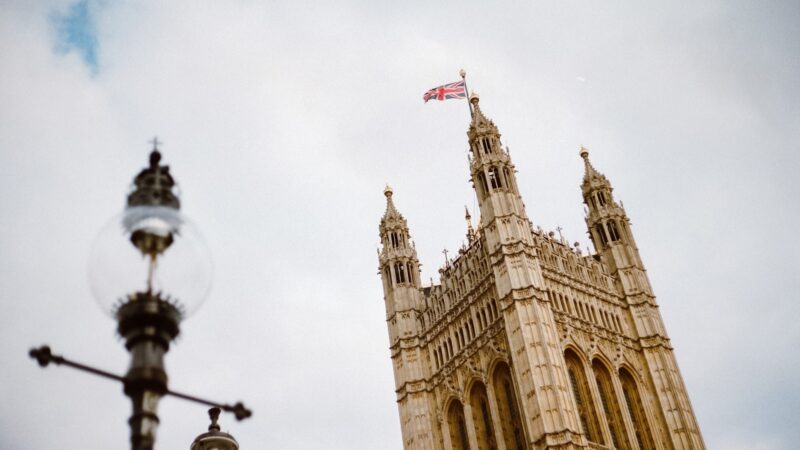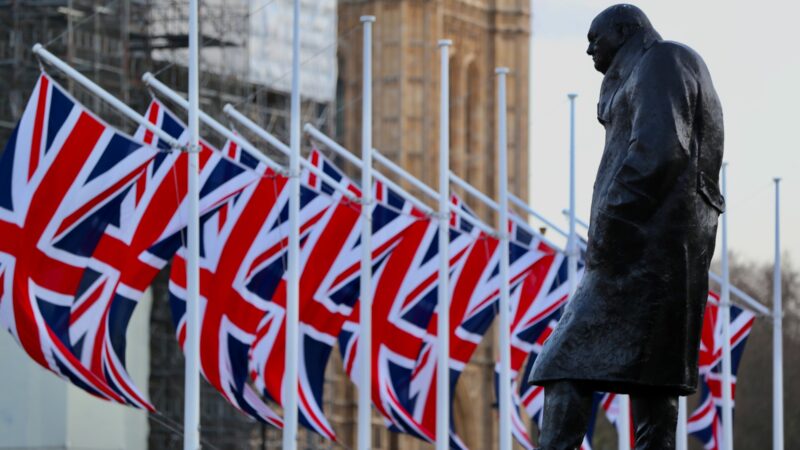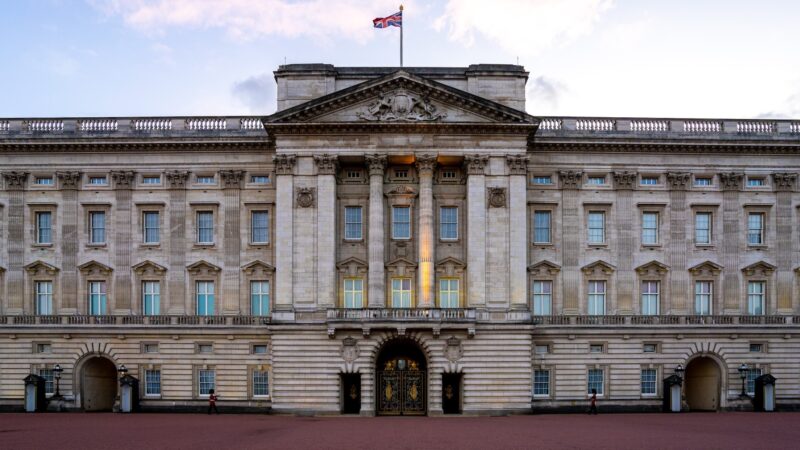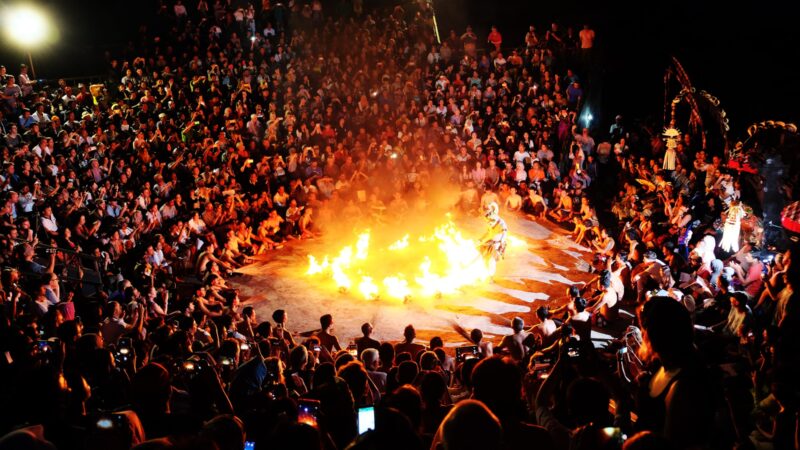The Supreme Court is Our Ship, Don’t Let it Sink
As conservatives and moral traditionalists, it’s easy to get despondent and fearful over just how vast and endless the problems we face today are. Here in America especially, the analogy of the “blue wave” of Millenial and Gen-Z voters often leads one to believe that we are surrounded on all sides by an endless sea of “progressivism”.
Nevertheless, in the great blue sea of blue-haired androgynes, we still have our ship, and we still have strong winds that will, in the long term, lead us to the safety of the land.
That ship is the Supreme Court, and it is our job as voters and conservative/traditional activists to ensure that she sails, and that we don’t let this next decade of judicial dominance go to waste as we have with other institutions of power – like the 2019 dominance of the Tory Party in the UK Parliament.
Where power resides is often unclear to most voters, especially in American politics. Our elected representatives in the Senate or the House are often bought and paid for by donors, PACs, business interests, or lobby groups well before they swear their oath of office and promise to represent their constituents to the best of their ability. The same goes with the Presidency, and the hundreds of millions of dollars that are spent on individual runs for the Oval Office.
However, out of the three branches of government that I would trust the most with representing my best interests, I would have to place my faith in the power of the Supreme Court.
These days we’ll often hear and see politicians and activists on social media and in other public forums hounding about the “abuse of power” in the Supreme Court, especially after the recent decisions to overturn Affirmative Action for university applicants, striking down Student Loan Forgiveness, and allowing businesses to refuse services if it goes against their religious beliefs (a.k.a being allowed to refuse baking a cake for a homosexual wedding).
Hillary Clinton, everyone’s favorite former First Lady and “future President”, accused the Supreme Court of being on the side of the wealthy and major corporations.
AOC cried that the recent decisions were “destroying the legitimacy of the court.”
Many more have advocated for more Supreme Court Justices, or regulatory bodies overseeing the Supreme Court so that it doesn’t make the “wrong decisions” for the American people.
While there are plenty of detractors to the efficiency and legitimacy of the Supreme Court, I still argue that this is probably the most important branch of government to protect, and fight for, due to the nature of its being. It was around this time last year I wrote about the Supreme Court in the wake of the Roe v. Wade decision.
Once again, demonstrably, we have seen why the Supreme Court is the most important branch of government, and why it is under attack, and why these days in particular it is the most important battleground for American conservatism in politics.
Unlike Congress, or the Executive, Supreme Court Justices are not elected – they’re selected, by nomination, from a sitting President. The power of money and lobbies are, at the very least, dampened by the fact that they have no official power in choosing a Justice, nor any means to fund campaigns or influence election processes.
Justices are in the role for life. An appointment that doesn’t rely on reelection is one that doesn’t rely on being financed by donors and backers. Once they’re there, they’re there for good. Personally, I trust a judge who doesn’t need to go begging to anyone that will fund their campaign coffers every two to four years more than I do a sitting member of Congress, Republican or Democrat.
When it comes to the selection process, the concern for almost everyone is that those who are selected are “the wrong type of person”, and stacking the Supreme Court with partisan ideologues. Often, if not always, the nominated judge will reflect the character and ideology of the serving administration. Our most recently appointed Supreme Court Justice, Kentaji Brown Jackson reflects the Biden administration almost perfectly. She’s an activist judge, appointed not just because of her record and experience, but also because she fits the diversity quota, and agrees with the “current thing”. This is a shame, because I can only imagine how humiliating it must be to be selected primarily because of your gender and race, rather than your achievements.
And it was no secret that it was a race-based decision. The Biden administration promised well before his decision to select Jackson that he was “looking forward to making sure there’s a Black woman on the Supreme Court to make sure we in fact get everyone represented”.
Naturally, any one who points these facts out is an intolerant racist who wants to “keep Black Women™ down!”
It is no secret that Republicans select conservative judges to the Supreme Court in a similar fashion – rather it’s expected that they will.
But, as I’m sure you know dear reader, politics is not about compromise or shaking hands with the other side of the aisle. Politics is about winning. The Supreme Court in the United States is no different.
Which is why the Trump administration was a Godsend for conservatives in the United States. Not one, not two, but three successful nominations of conservative Justices have ensured that the Supreme Court will remain one of the few branches of government that is on “our side” at least in terms of beliefs and core values.
If Trump is able to secure a second non-consecutive term, or if we are able to have any sort of Republican in the next administration, it is likely that we’d gain at least one more conservative Justice, ensuring that a liberal Supreme Court is almost virtually impossible within the next two decades.
In recent years, with the overturning of Roe v. Wade amongst other landmark decisions, we’ve merely had a taste of what sort of power the Judicial Branch of government in the United States holds, and what they can do with that power.
If we were to see a completely stacked conservative Supreme Court, with Justices Sotomeyer and Kagan aging out of the role and being replaced, who knows what sort of decisions could be reversed and which others could be implemented? One can only dream!
But leaving the Supreme Court to its own devices is simply not enough. While I trust our current conservative Justices more than most politicians to make well-guided, reasoned, and inherently moral decisions in the judicial branch, they cannot tackle all problems on their own.
We ought to take a lesson out of the Left’s guidebook, and through demonstrations publicly and online, through widespread discussion, and most importantly through trawling through the hundreds, if not thousands of landmark decisions to nitpick and find Constitutional inconsistencies and government oversteps. They are there, and a case for overturning them can be made with the right amount of knowledge, preparation and legal due diligence.
So, while in many other aspects of American politics it may seem that we as conservatives and moral traditionalists are overwhelmed by the crashing waves in a sea of rabid liberalism, we still have power over a mighty ship that we must ensure does not sink into the abyss.
The only way to survive those rogue waves is to sail over them, and sail we will.












In Defence of Political Conflict
It’s often said that contemporary philosophy is stuck in an intellectual rut. While our forefathers pushed the boundaries of human knowledge, modern philosophers concern themselves with impenetrable esoterica, or gesture vaguely in the direction of social justice.
Yet venture to Whitehall, and you’ll find that once popular ideas have been refuted thoroughly by new schools of thought.
Take the Hegelian dialectic, once a staple of philosophical education. According to Hegel, the presentation of a new idea, a thesis, will generate a competing idea or counterargument, an antithesis. The thesis and the antithesis, opposed as they are, will inevitably come into conflict with one another.
However, this conflict is a productive one. With the merits of both the thesis and the antithesis considered, the reasoned philosopher will be able to produce an improved version of the thesis, a synthesis.
In very basic terms, this is the Hegelian dialectic, a means of philosophical reason which, if applied correctly, should result in a refinement and improvement of ideas over time. Compelling, at its face.
However, this idea is now an outmoded one. Civil servants and their allies in the media and the judiciary have, in their infinite wisdom, developed a better way.
Instead of bothering with the cumbersome work of developing a thesis or responding to it with an antithesis, why don’t we just skip to the synthesis? After all, we already know What Works through observation of Tony Blair’s sensible, moderate time in No 10 – why don’t we just do that? That way, we can avoid all of that nasty sparring and clock off early for drinks.
This is the grim reality of modern British politics. The cadre of institutional elites who came to dominate our political system at the turn of the millennium have decided that their brand of milquetoast liberalism is the be-all and end-all of political thought. The great gods of this new pantheon – Moderation, Compromise, International Standing, Rule of Law – should be consulted repeatedly until nascent ideas are sufficiently tempered.
The Hegelian dialectic has been replaced by the Sedwillian dialectic; synthesis begets synthesis begets synthesis.
In turn, politicians have become more restricted in their thinking, preferring to choose from a bureaucratically approved list of half-measures. Conservatives, with their aesthetic attachment to moderate, measured Edwardian sensibilities, are particularly susceptible to this school of thought. We no longer have the time or space for big ideas or sweeping reforms. Those who state their views with conviction are tarred as swivel-eyed extremists, regardless of the popularity of their views. Despite overwhelming public dissatisfaction with our porous borders, politicians who openly criticise legal immigration will quickly find calls to moderate. If you’re unhappy with the 1.5 million visas granted by the Home Office last year, perhaps you’d be happy with a mere million?
The result has been decades of grim decline. As our social fabric unravels and our economy stagnates, we are still told that compromise, moderation, and sound, sensible management are the solutions. This is no accident. Britain’s precipitous decline and its fraying social fabric has raised the stakes of open political conflict. Nakedly pitting ideas against each other risks exposing our society’s underlying decisions and shattering the myth of peaceful pluralism on which the Blairite consensus rests. After all, if we never have any conflict, it’s impossible for the Wrong Sorts to come out on top.
The handwringing and pearl-clutching about Brexit was, in part, a product of this conflict aversion. The political establishment was ill-equipped to deal with the bellicose and antagonistic Leave campaign, and the stubbornness of the Brexit Spartans. Eurosceptics recognised that their position was an absolute one – Britain must leave the European Union, and anything short of a full divorce would fall short of their vision.
It was not compromise that broke the Brexit gridlock, but conflict. The suspension of 21 rebel Conservative MPs was followed by December’s general election victory. From the beginning of Boris Johnson’s premiership to the end, he gave no quarter to the idea of finding a middle ground.
Those who are interested in ending our national decline must embrace a love of generative adversity. Competing views, often radical views, must be allowed to clash. We should revel in those clashes and celebrate the products as progress. Conservatives in particular must learn to use the tools of the state to advance their interests, knowing that their opponents would do the same if they took power.
There are risks, of course – open conflict often produces collateral damage – but it would be far riskier to continue on our current path of seemingly inexorable deterioration. We must not let the mediocre be the enemy of the good for any longer.
Photo Credit.